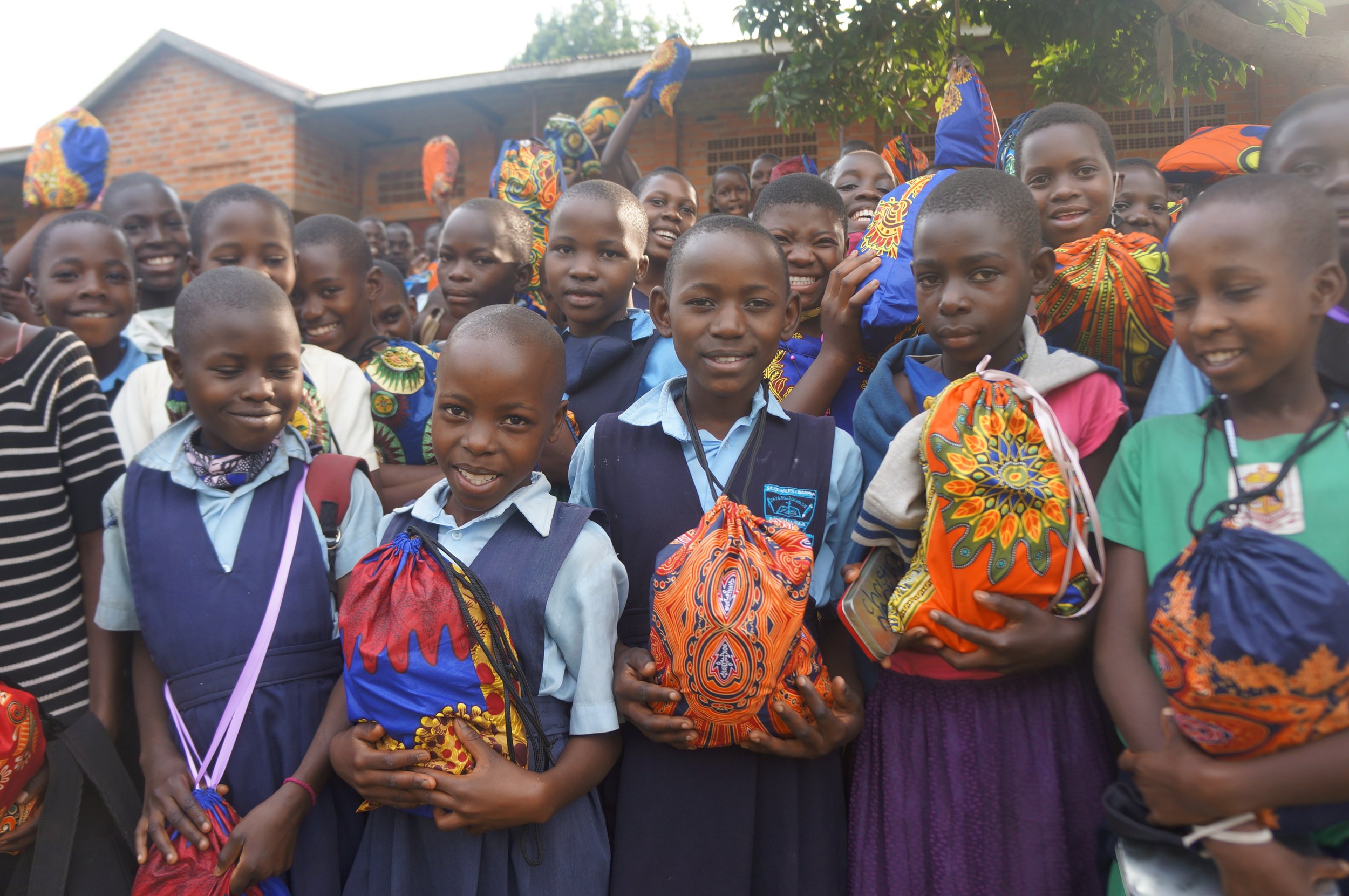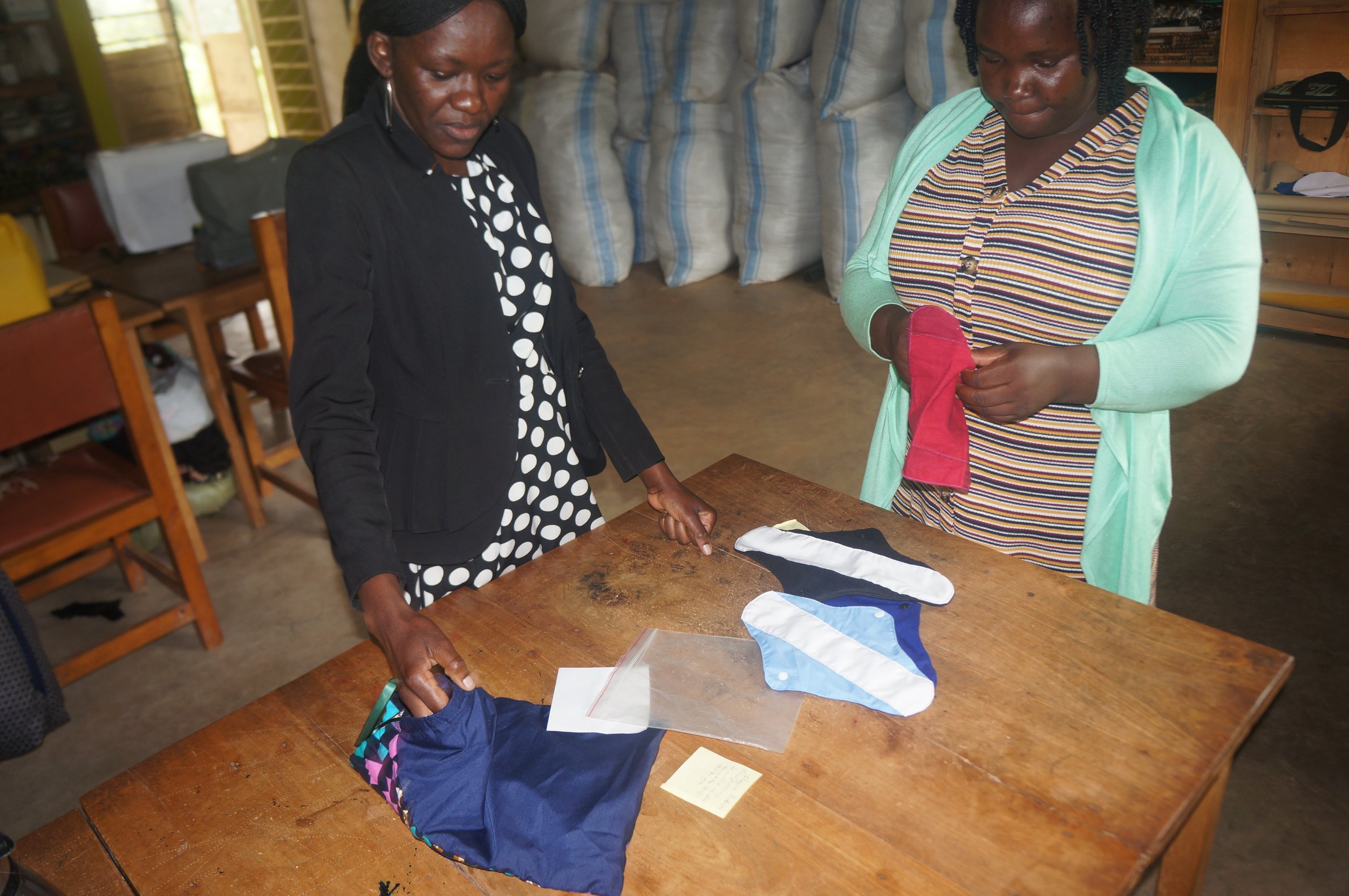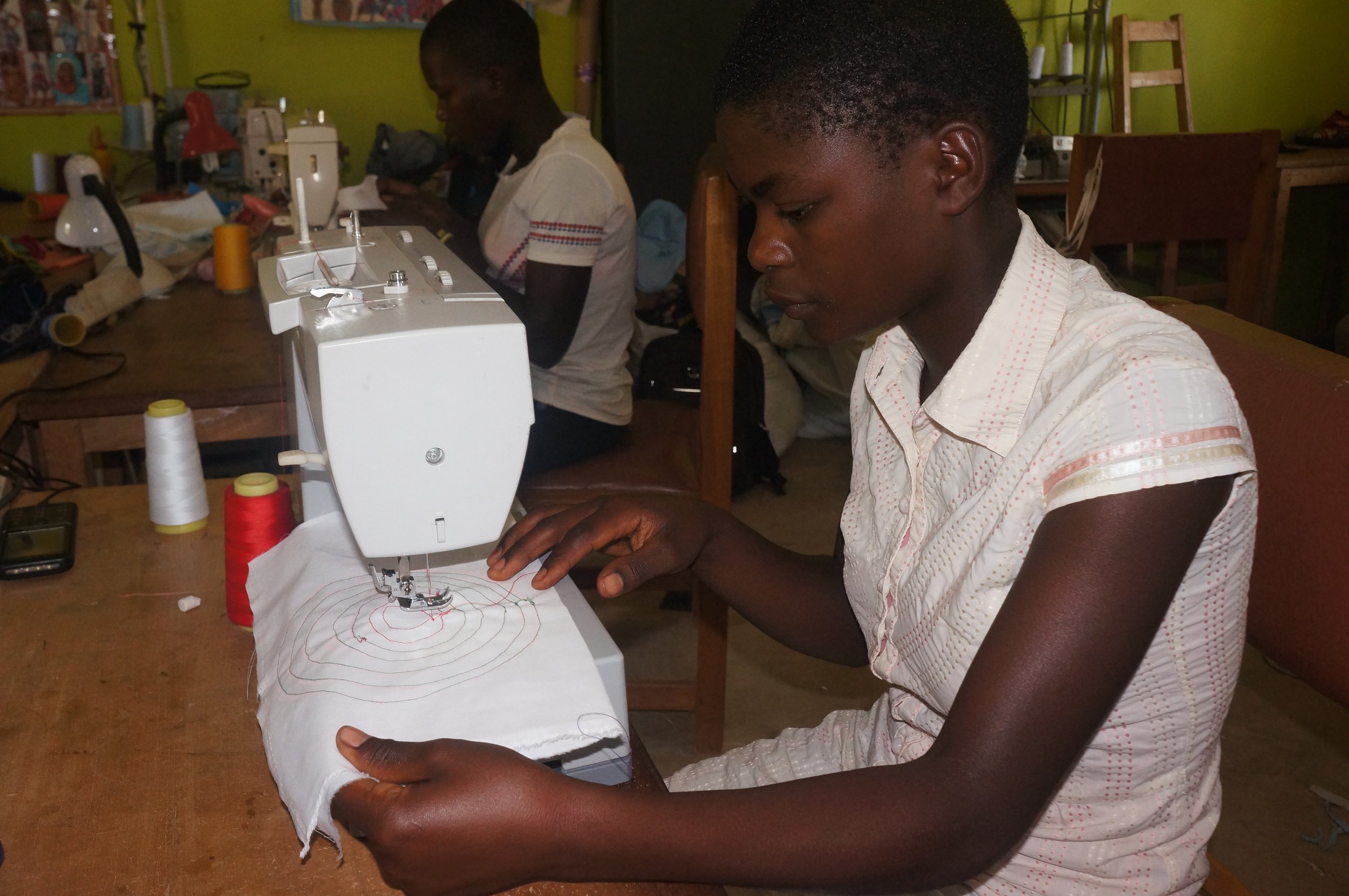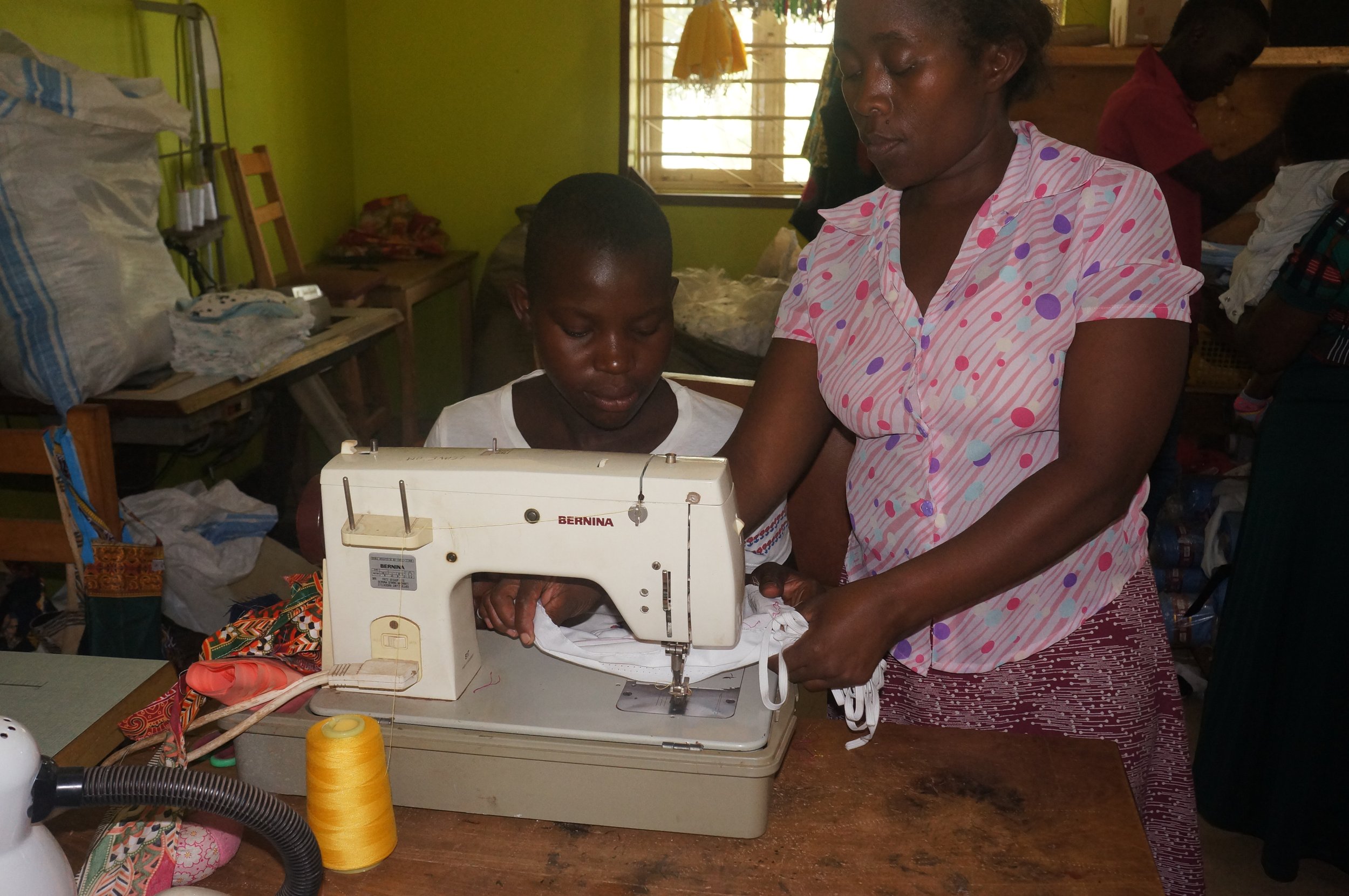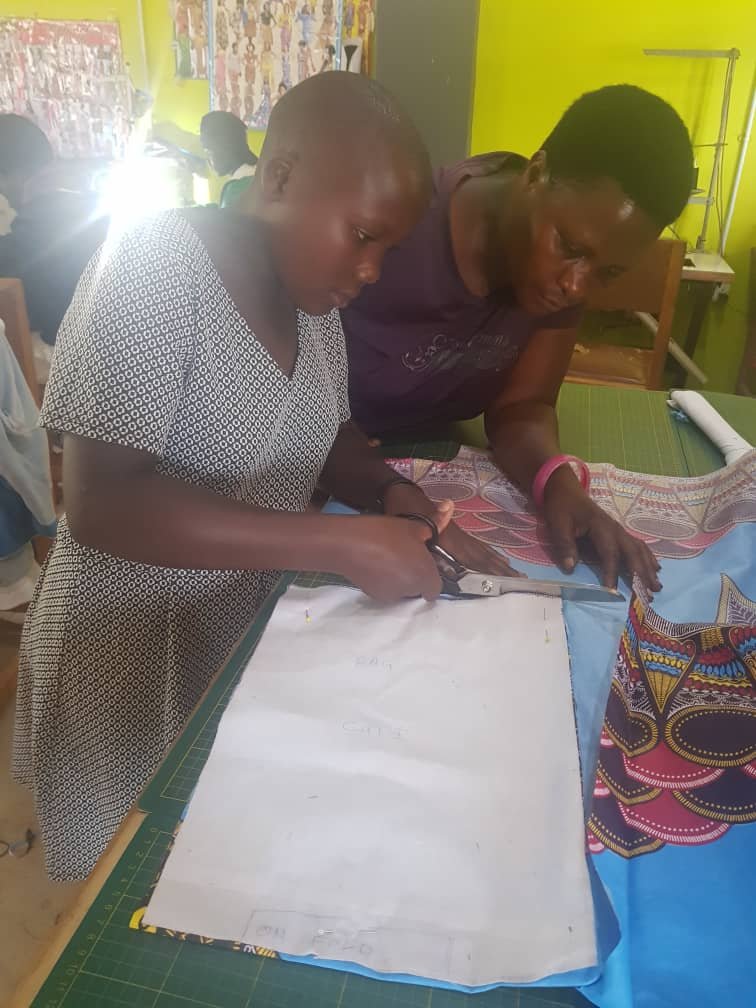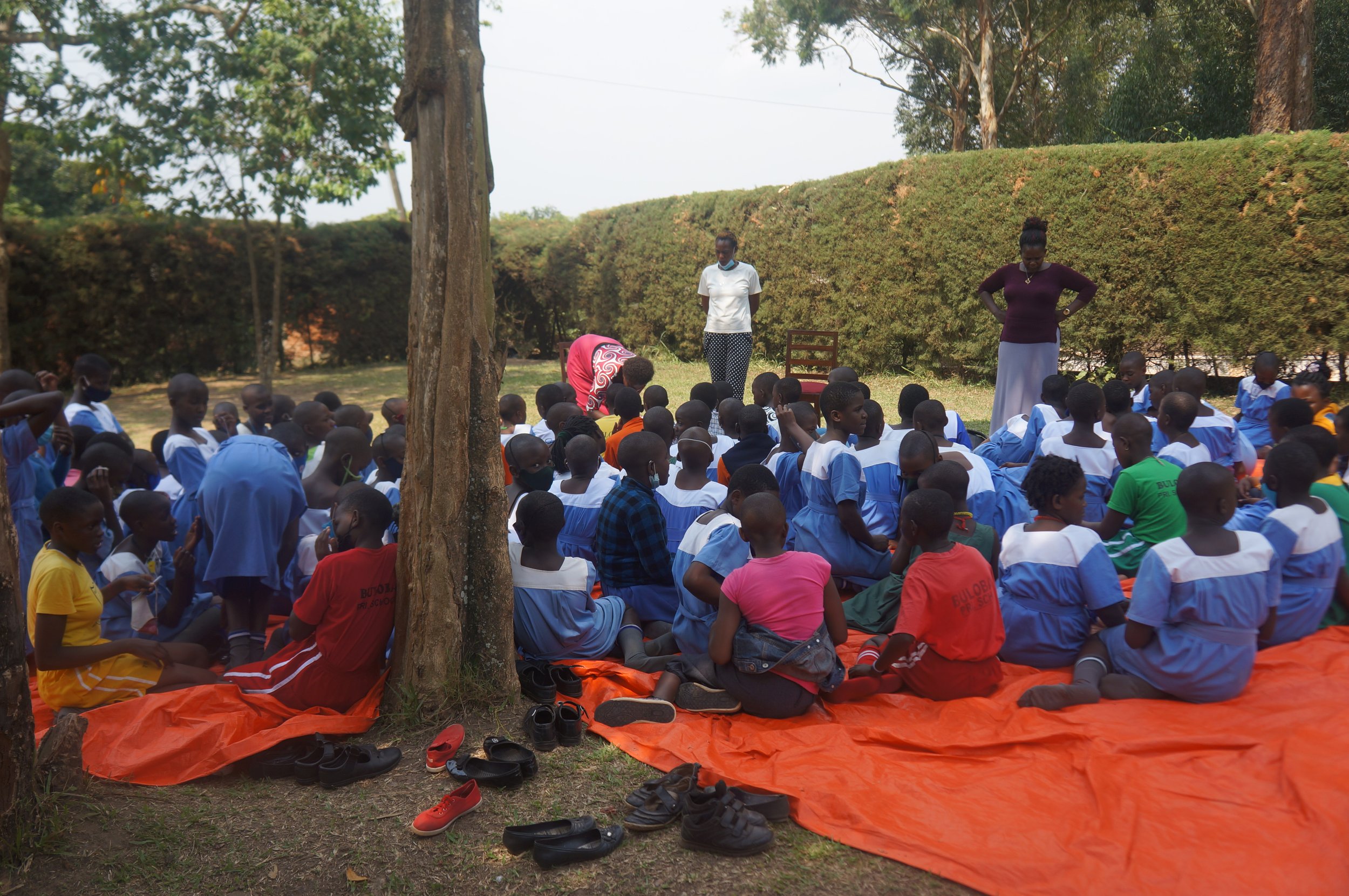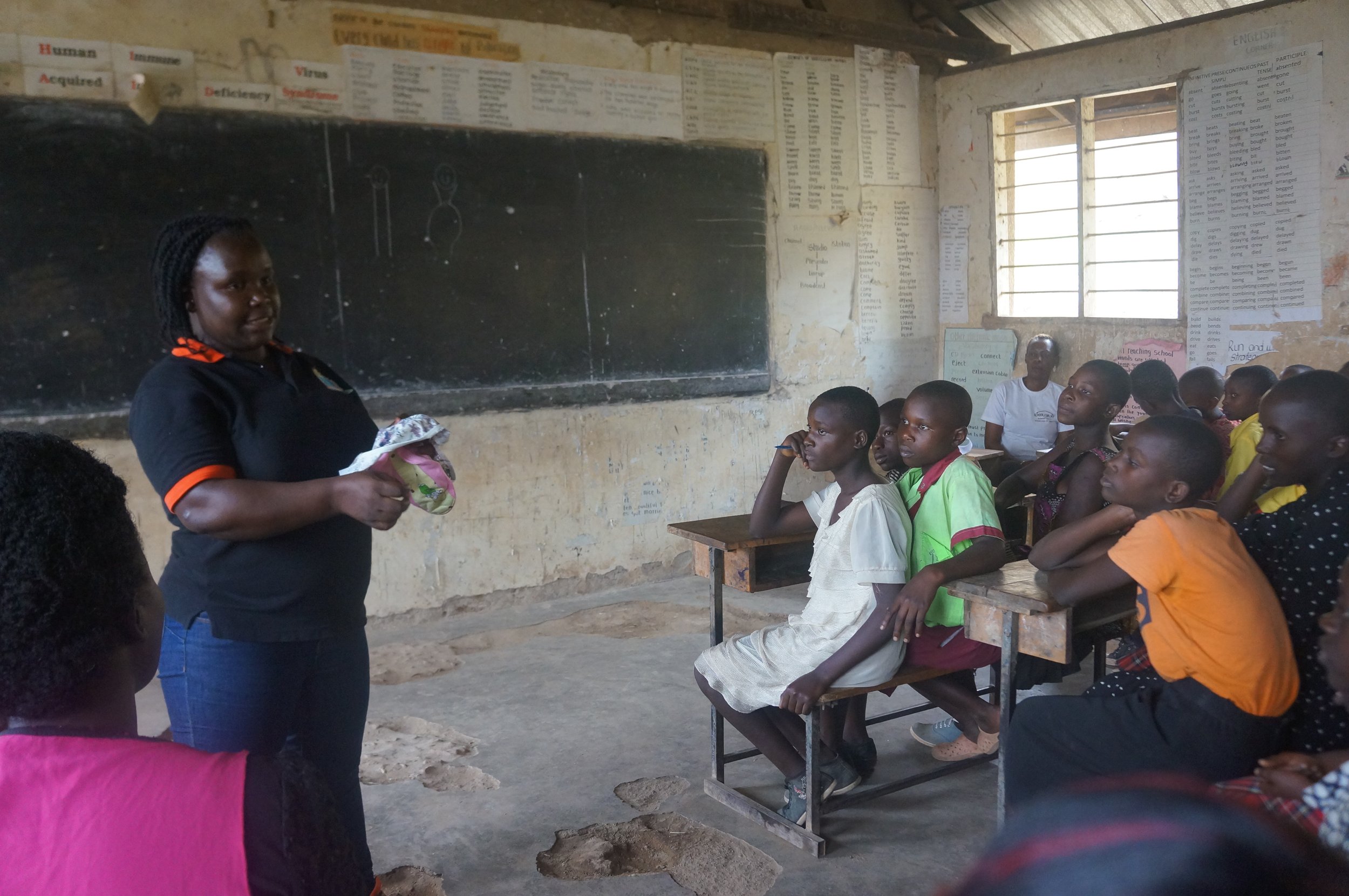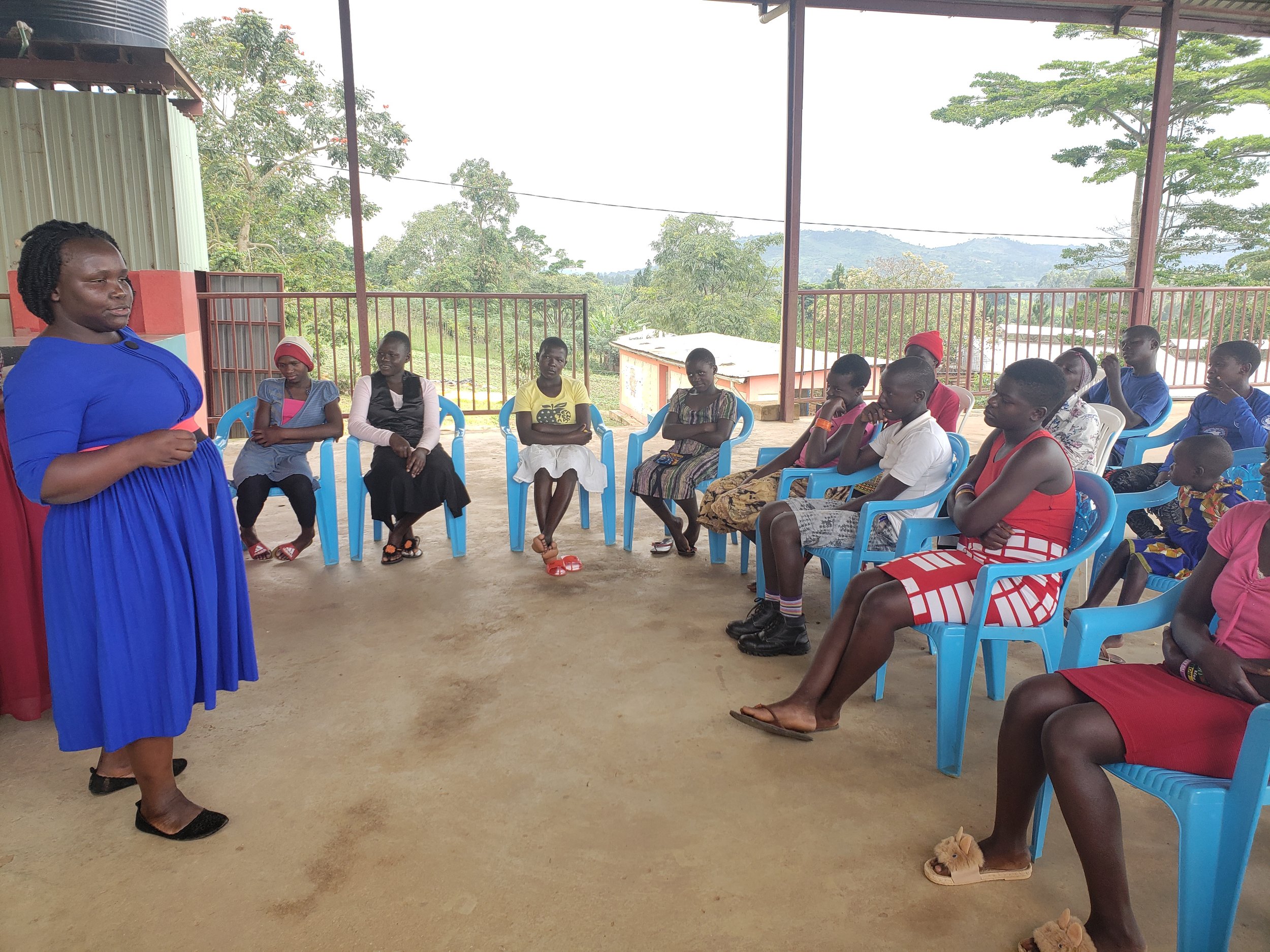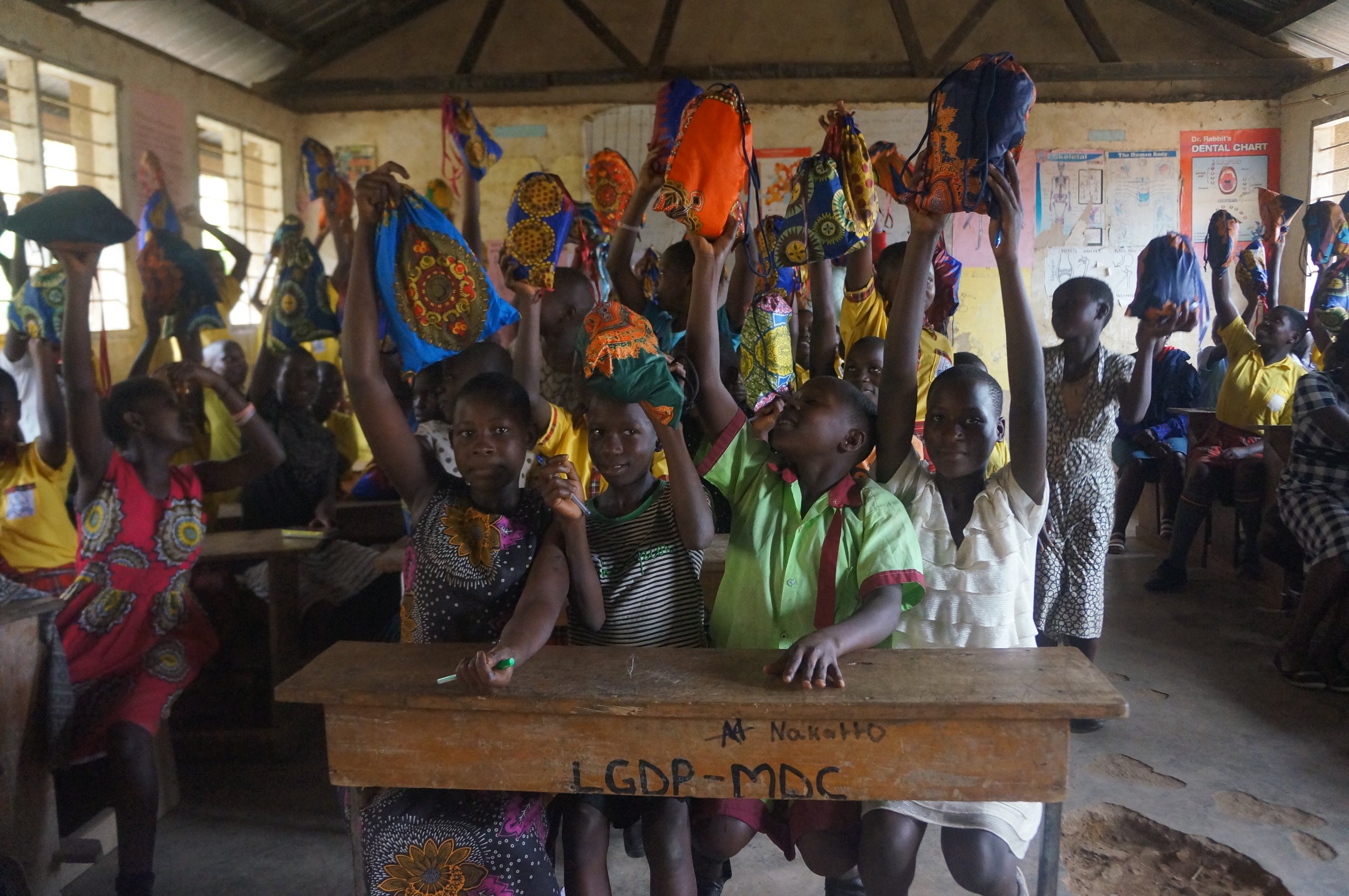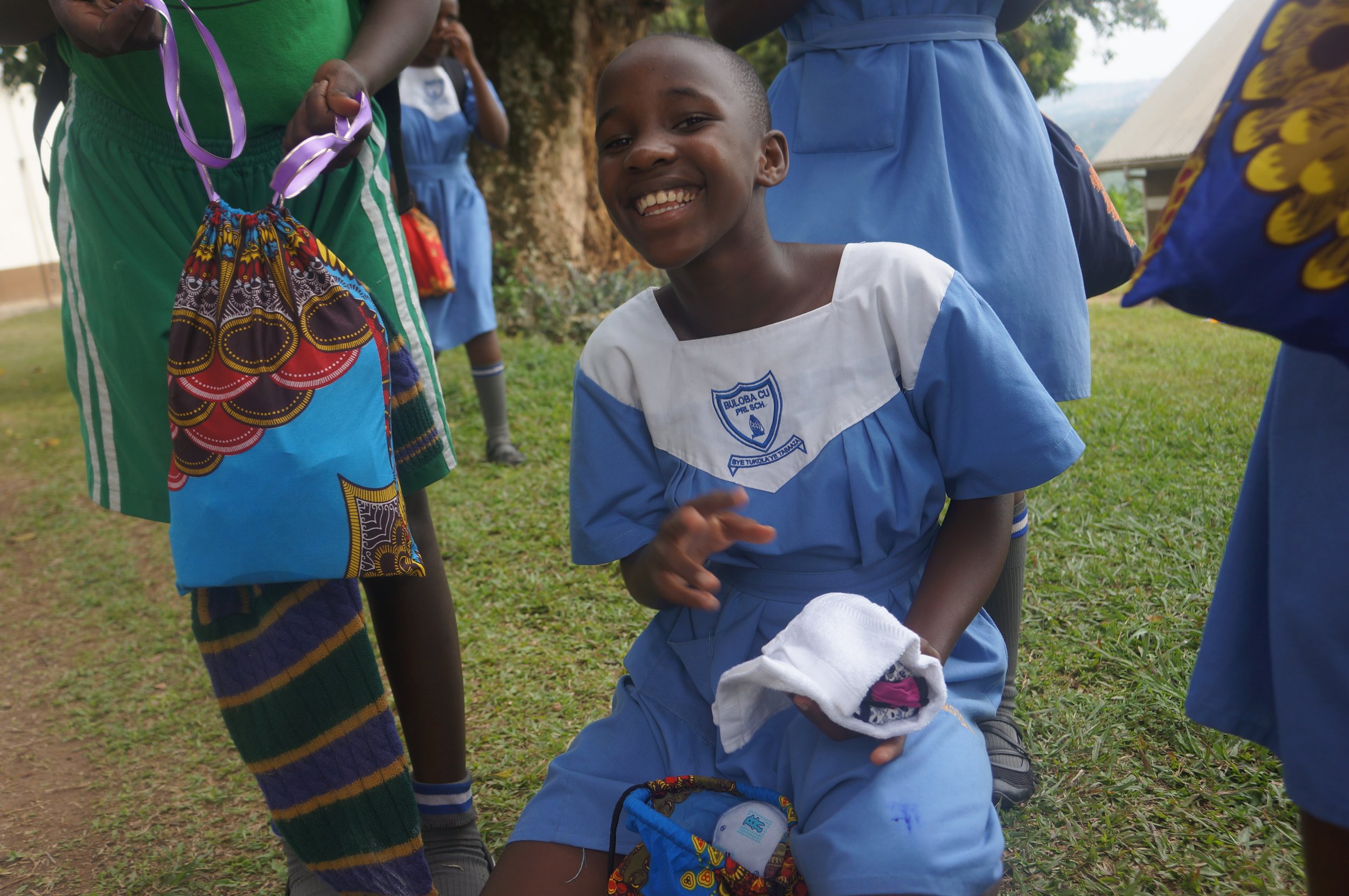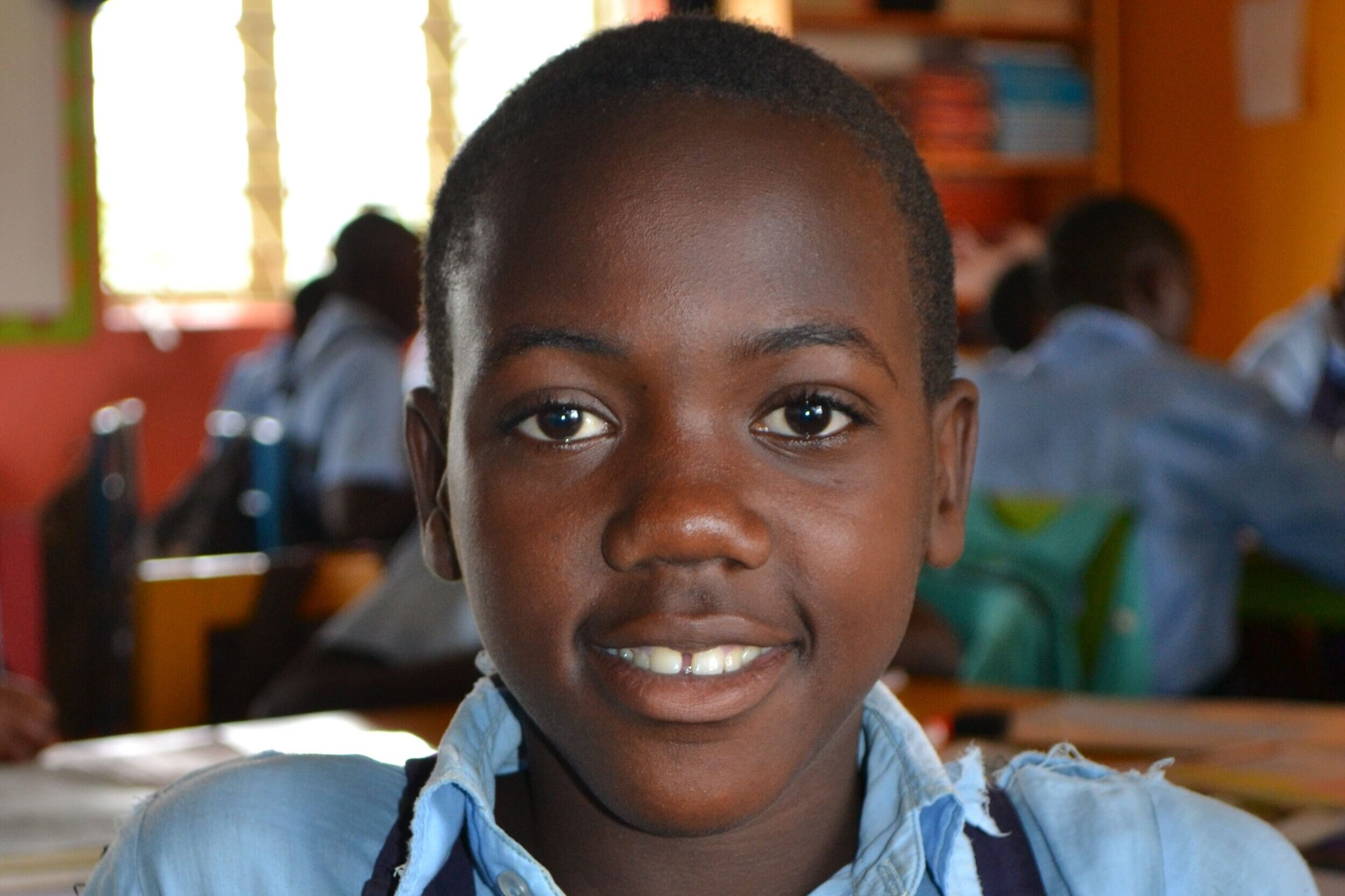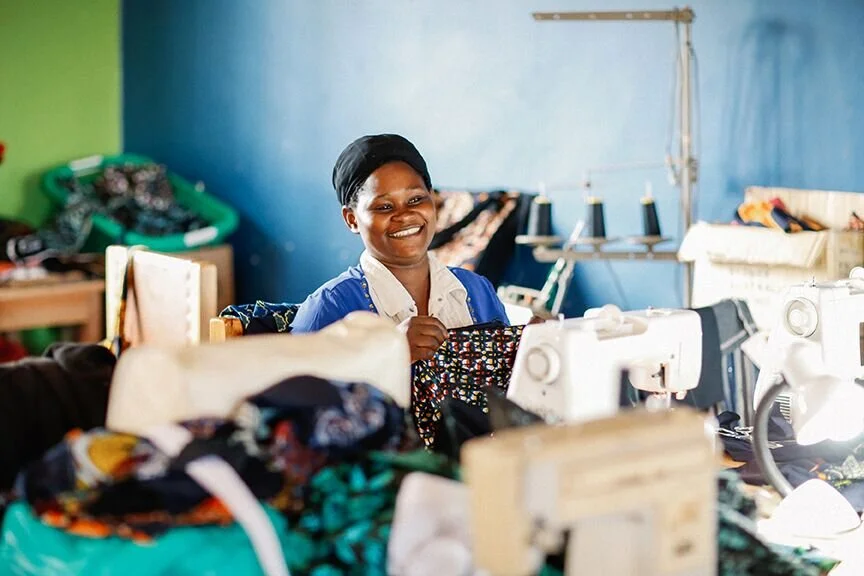Menstrual hygiene management (MHM) is a major and ongoing issue for girls and young women living below the poverty line, not unlike our vulnerable Katuuso and Mbazzi communities.
The hygienic and safe management of a girl’s menstrual cycle not only impacts health and well being, but also has the potential to have a significant impact on academic achievement as well as the achievement of School for Life's educational objectives, with student absenteeism a major risk factor.
Such a need could not go unnoticed and so, at the end of 2021, School for Life developed a pilot project to help address this issue within our developing communities.
Students at a local government school receiving their MHM kits for the first time!
As part of our Girls’ Fund Initiative which launched in October 2020, and thanks to our major funder the Phillips Foundation, we were able to launch our MHM program which saw the production of 2,500 menstrual hygiene kits distributed to women and women and girls across School for Life's three school campuses, seven local public schools and within five surrounding communities.
In order to complete all 2,500 kits, a mentoring program was set up between School for Life’s KUMI tailoring women and the students from our Primary 7 class, enabling our students to further the skills they had learnt earlier in the year through our skills training partner, SAWA World as well as provide additional income for our tailoring ladies.
With each kit containing 4 x re-usable sanitary pads, made in-house from fleece and flannel with a waterproof lining, 2 x pairs of underwear, 1 x soap bar, 1 x washcloth, 1 x leakproof ziplock bag and 1 x drawstring bag, all made in-house, these kits are expected to last three years meaning families experience less of a financial burden plus the reusable pads means less going to landfill. A win for the families and a win for the environment!
"I am a single mother of three children, operating a chips stall at Katuuso village. I don’t make enough money to look after my children so buying disposable pads has always been a challenge to me that at times I end up using old clothes which sometimes don’t hold the blood well and I end up staining my clothes but I am so happy that I have been given free re–usable pads which will save me money and also save me from using old clothes."
Quote from local community member
As well as the kits themselves, our Community & Welfare team led sensitisation sessions prior to and during the MHM kit distribution at the start of this year, to help better educate the women and young girls in our communities on the changes and challenges faced during menstruation and how to manage them.
These sessions were a great way to bust myths and misconceptions about menstruation that have kept girls home from school - myths such as:
Not being able to be involved in certain activities and chores while menstruating for example, playing sport and cooking.
Strictly eating a certain type of food whilst menstruating.
And not being allowed to interact with any male persons.
These myths and misconceptions about menstruation contribute to many girls typically missing school for at least 3 – 4 days every month. This means a girl could be absent from school for 36-48 days per year! Such high numbers of missed school days have a profound negative impact to the girls’ educational performance and outcomes.
The sensitisation sessions proved a critical component of the project to not only reduce the stigma and bust myths around MHM but to improve community attitudes.
"The sensitisation is timely as we were struggling to approach learners on the subject matter... We now have a lot of confidence that the learners have been empowered with the right information and the materials to take them through the menstrual season every month and thus no girl child will miss class over periods."
- Quote from a teacher at Buloba Primary School
In July this year, we were able to conduct an impact survey with 250 recipients of the menstrual hygiene kits. We are happy to report 98% of respondents said they continue to attend school while on their period and 96% of respondents reported a difference during school after receiving the kits.
With 100% of School for Life's female students of menstrual age now having access to MHM kits and an overwhelming positive response from the community, we are hoping to run this project again.
If you would like to find out how you can support our Girls’ Fund initiatives such as our MHM program, visit our She Could Be site via the link here.

